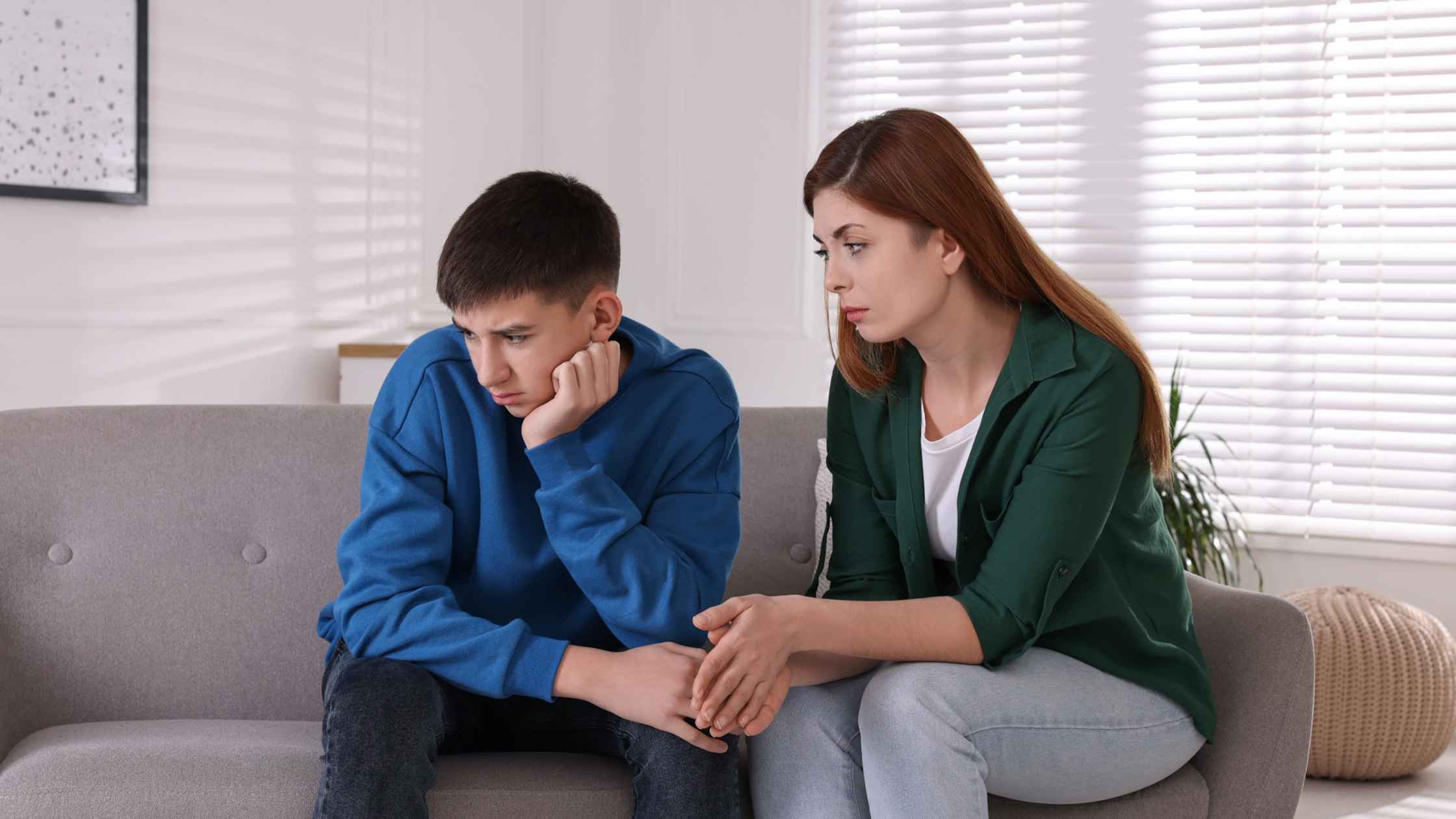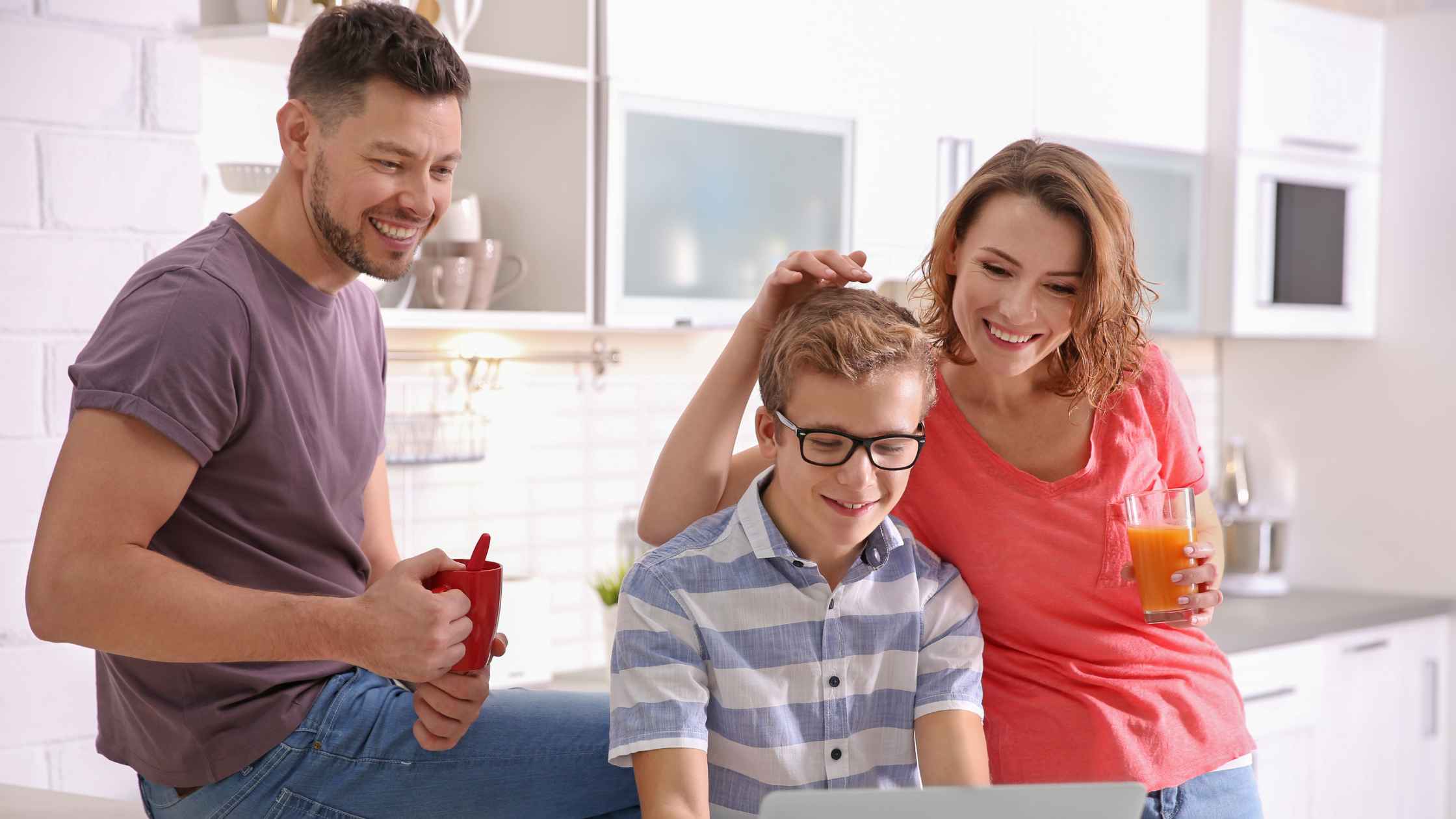As a parent, it can be challenging and stressful to watch your child befriend someone you feel is a bad influence.
You may worry that their negative behaviors will rub off on your child or lead them down a problematic path. However, it’s important to handle the situation delicately to avoid pushing your child away.
Here are some strategies for addressing your concerns while maintaining a strong relationship with your child.
Understand the Appeal

Before reacting, try to understand why your child is drawn to this particular friend.
As licensed clinical social worker Mercedes Samudio explains, kids are naturally empathetic and want to connect with others. They may admire certain traits in the “troublemaker” friend that they feel they themselves lack, like boldness or a carefree attitude.
Asking your child open-ended questions about what they like about their friend can help you gain insight into the friendship’s appeal.
Child psychologist Helena Goodwill adds that kids may have conflicting feelings about problematic friendships. Acknowledging and validating those mixed emotions is important.
Guide your child in recognizing when a friend’s behavior crosses their personal boundaries, and strategize appropriate ways they can respond, such as standing up for themselves, talking to the friend about the behavior, or taking a break from the friendship if needed.
Support Positive Friendships

While you can’t force your child to end a friendship, you can encourage them to reflect on what makes a good friend. Ask questions like:
- What qualities do you look for in a friend?
- Which of your friends have those qualities?
- How do you feel when you’re with your different friends?
- Do certain friends bring out the best in you? Why or why not? Showing interest in and affirming your child’s other friendships that you view as positive can subtly guide them toward those relationships.
Set Clear Boundaries

Although you want to be careful not to criticize your child’s friend directly, it’s okay to set boundaries around behaviors you don’t condone.
Use specific examples, like “I don’t appreciate how she talks back to adults.” Framing it objectively keeps the focus on the conduct itself rather than attacking the friend’s character.
You can also set limits on how much time your child spends with that particular friend, or make certain activities off-limits.
Just be sure to communicate that these boundaries stem from your family’s values rather than arbitrary rules targeting the friend.
Reinforce that different families have different boundaries, and that’s okay.
Be a Strong Influence Yourself

Remember, parents are a powerful influence in a child’s life, even as peers become increasingly important.
Modeling good social behavior, like kindness and respect, sends a strong message about the values and traits you prioritize.
Spend one-on-one time with your child doing activities you both enjoy. Keep communication open and judgment-free, so they feel comfortable opening up to you.
Ask about their friendships periodically, but don’t only focus on the problematic one. Get to know their other friends and affirm what you see as positive about those relationships.
When to Intervene

In most cases, it’s best to play the role of consultant rather than director in your child’s social life.
Making mistakes and learning from them is part of growing up. However, there are times when a friendship may pose serious risks that require intervention.
Red flags include:
- Your child seeming afraid of their friend
- The friend encouraging dangerous rule-breaking or risky behaviors like substance use
- The friend being verbally or physically aggressive
In these cases, setting strict limits or prohibiting the friendship may be necessary for your child’s well-being. Consulting your child’s doctor or a counselor can provide additional guidance.
The Bottom Line
Navigating a child’s problematic friendship is a delicate balance. Whenever possible, aim to be a coach rather than a dictator.
Ask questions to help your child gain insight into the relationship and their own social values.
Encourage friendships you view as positive influences. Set clear, reasonable boundaries around unacceptable behaviors. Model strong social skills and keep lines of communication open.
Most importantly, make sure your child knows your love and support are unconditional.
With your guidance, they can learn to choose friends who help them become the best version of themselves.
Additional tips:
- Check in regularly about how things are going with their friends. Avoid lecturing and instead aim for an open dialogue.
- Teach healthy conflict resolution skills they can use in friendships.
- Get to know their friend’s parents and share concerns if needed.
- Encourage positive extra-curricular activities where they can meet a variety of peers.
- Affirm their kind and respectful behaviors in friendships.
- Teach assertiveness skills so they can stand up for themselves.
- Avoid ultimatums, as they may backfire and damage your relationship.
- Remember that mistakes and social missteps are opportunities for growth. Respond with empathy and guidance.
What are your thoughts and experiences with your kids’ friendships? Leave a comment below.




